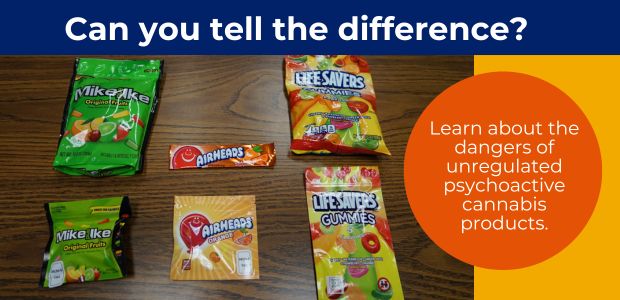Unregulated Psychoactive Cannabis Products
Unregulated Psychoactive Cannabis Products


Bureau of Environmental Health Services
Missouri Department of Health and Senior Services
PO Box 570
Jefferson City, MO 65102-0570
Phone: 573-751-6095
Email: RetailFood@health.mo.gov
PLEASE READ THIS DISCLAIMER CAREFULLY BEFORE USING THE SERVICE
Some State of Missouri websites can be translated into many different languages using Google™ Translate, a third party service (the "Service") that provides automated computer translations of web pages. The Google™ Translate Service is offered as a convenience and is subject to applicable Google Terms of Service. Providing the service as a convenience is not an endorsement of the product or the results generated and nothing herein should be construed as such an approval or endorsement.
The content of State of Missouri websites originate in English. If there are differences between the English content and its translation, the English content is always the most accurate. By selecting a language from the Google Translate menu, the user accepts the legal implications of any misinterpretations or differences in the translation.
As Google's translation is an automated service it may display interpretations that are an approximation of the website's original content. You should not rely on Google™ Translate to provide an exact translation of the website. There are circumstances where the service does not translate correctly and/or where translations may not be possible, such as with certain file types, video content, and images. In addition, some applications and/or services may not work as expected when translated.
The State of Missouri has no control over the nature, content, and availability of the service, and accordingly, cannot guarantee the accuracy, reliability, or timeliness of the translation. Neither the State of Missouri nor its employees accept liability for any inaccuracies or errors in the translation or liability for any loss, damage, or other problem, including without limitation, indirect or consequential loss or damage arising from or in connection with use of the Google™ Translate Service.
Google Translate will not translate all applications.
If assistance is needed, please call 1-573-751-6400.